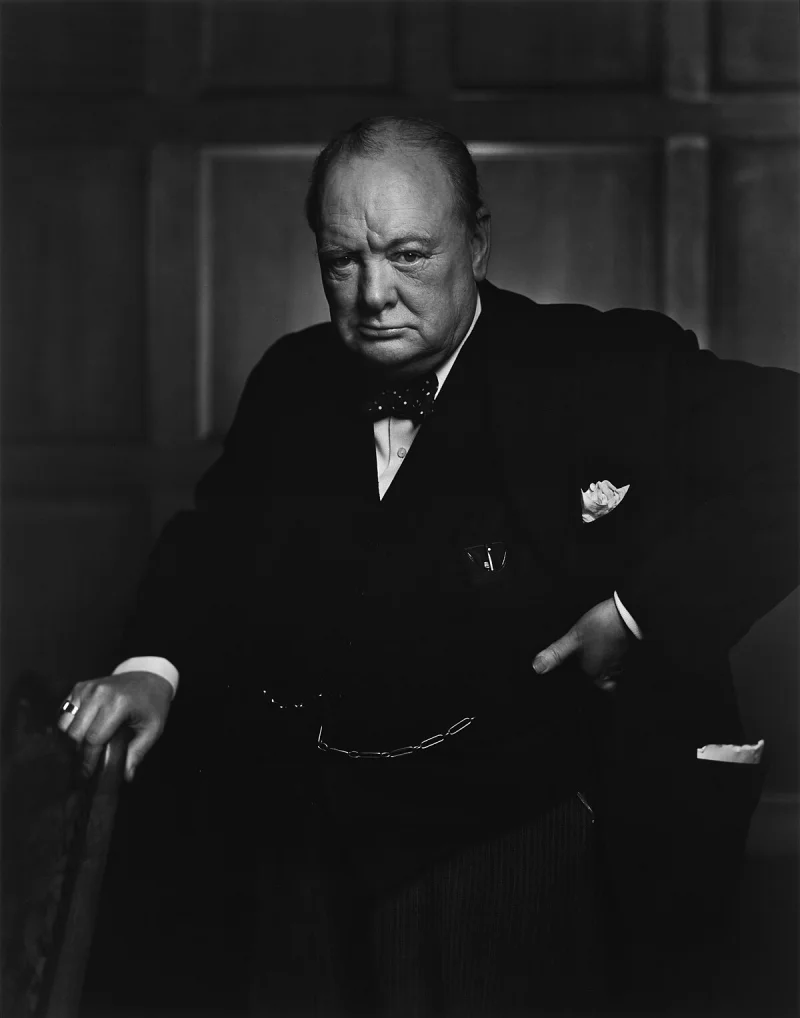Short Summary
Winston Churchill was a prominent British statesman, military leader, and writer who served as Prime Minister of the United Kingdom during World War II. Renowned for his leadership and oratory skills, he played a crucial role in leading Britain to victory against Nazi Germany. Churchill's influence extended beyond politics, as he was also awarded the Nobel Prize in Literature in 1953. His legacy as a defender of democracy and his unyielding spirit in times of adversity have made him an enduring figure in history.
Early Life & Education
Born on November 30, 1874, in Blenheim Palace, Oxfordshire, Winston Churchill was the son of Lord Randolph Churchill and Jennie Jerome, an American socialite. His early education took place at St. George's School and later at Harrow School, where he developed a keen interest in military affairs. Churchill's academic journey continued at the Royal Military Academy Sandhurst, where he trained for a career in the British Army. His upbringing in a politically active family and exposure to public life from a young age significantly influenced his ambitions and future career in politics.
Career Highlights
Churchill's career was marked by significant achievements in both military and political arenas. He began as a war correspondent before joining the British Army, serving in conflicts in India and the Sudan. Entering politics, he was elected as a Member of Parliament in 1900 and held various ministerial positions, including First Lord of the Admiralty during World War I. His most notable role came when he became Prime Minister in 1940, leading Britain through World War II. His strategic foresight, leadership, and inspirational speeches were instrumental in rallying the British people and securing an Allied victory.
Major Achievements
- Led Britain as Prime Minister during World War II, contributing to the defeat of Nazi Germany.
- Received the Nobel Prize in Literature in 1953 for his historical writings and speeches.
- Played a key role in the formation of the United Nations after World War II.
- Advocated for European unity and the establishment of a "United States of Europe."
Famous Quotes
- "Success is not final, failure is not fatal: it is the courage to continue that counts."
- "We shall fight on the beaches, we shall fight on the landing grounds, we shall fight in the fields and in the streets, we shall fight in the hills; we shall never surrender."
Interesting Facts
- Churchill was an accomplished painter and created over 500 works of art.
- He was the first person to be made an honorary citizen of the United States.
- Despite his achievements, he struggled academically and failed several school entrance exams.
Legacy / Influence
Winston Churchill's legacy is defined by his steadfast leadership during one of history's most challenging periods. His contributions to peace and global cooperation continue to influence international relations. As a symbol of resilience and determination, his speeches and writings remain motivational and are studied worldwide, ensuring his place as a pivotal figure in both British and world history.
FAQ
Q: Why is Winston Churchill famous?
A: He is famous for his leadership as Prime Minister of the United Kingdom during World War II and his influential speeches.
Q: What award did Churchill receive for his writings?
A: He was awarded the Nobel Prize in Literature in 1953.
Q: Did Churchill have any artistic talents?
A: Yes, he was an accomplished painter, creating over 500 artworks during his lifetime.








